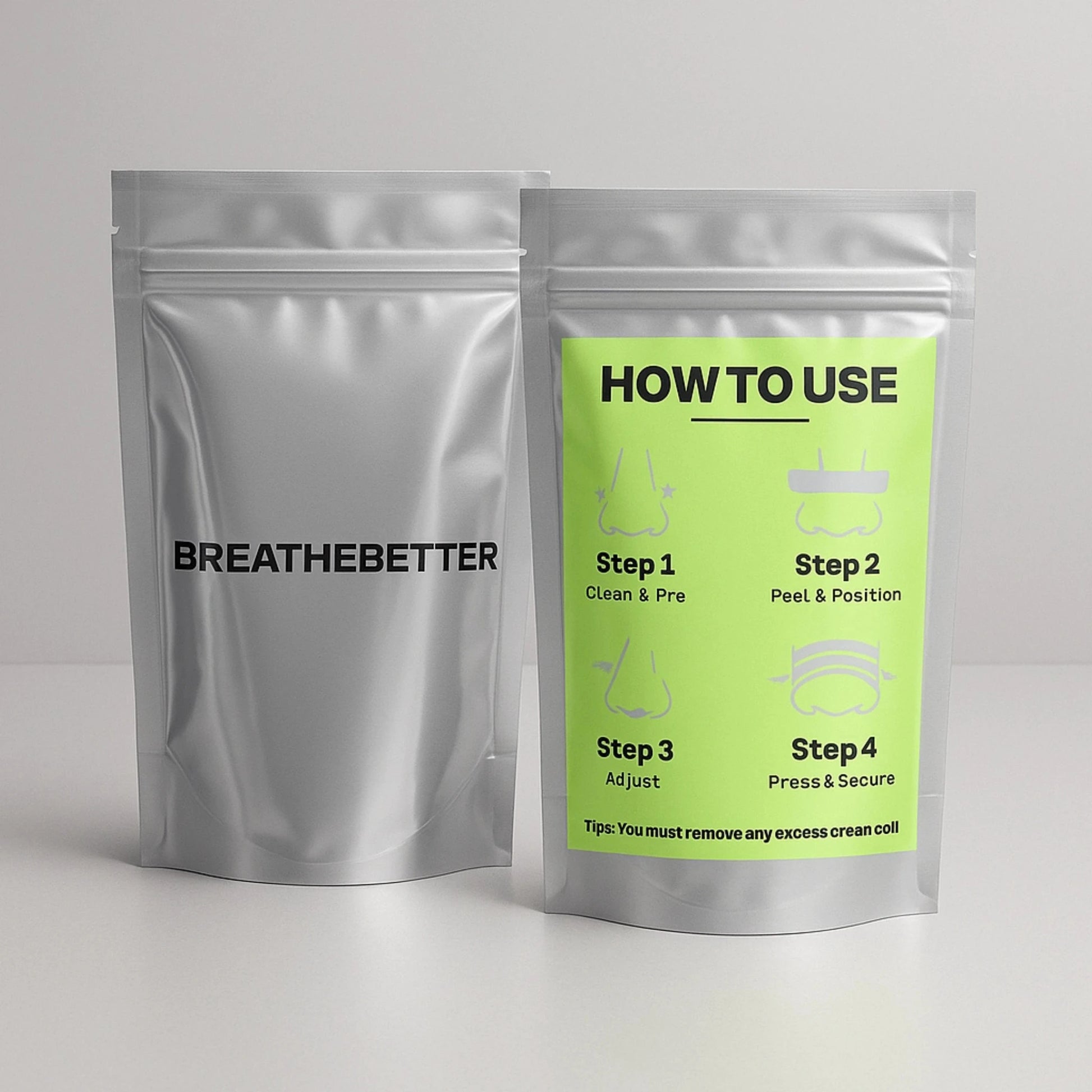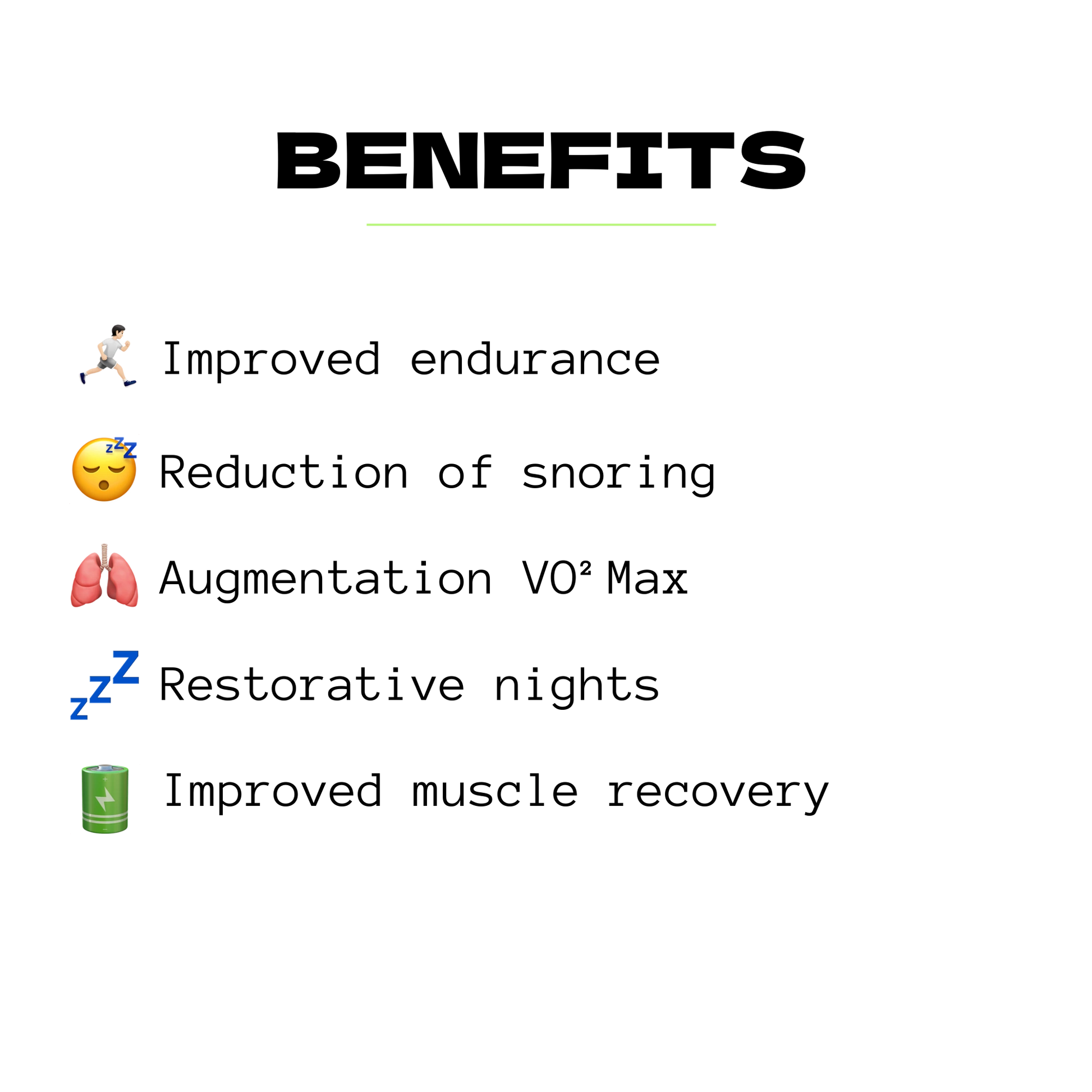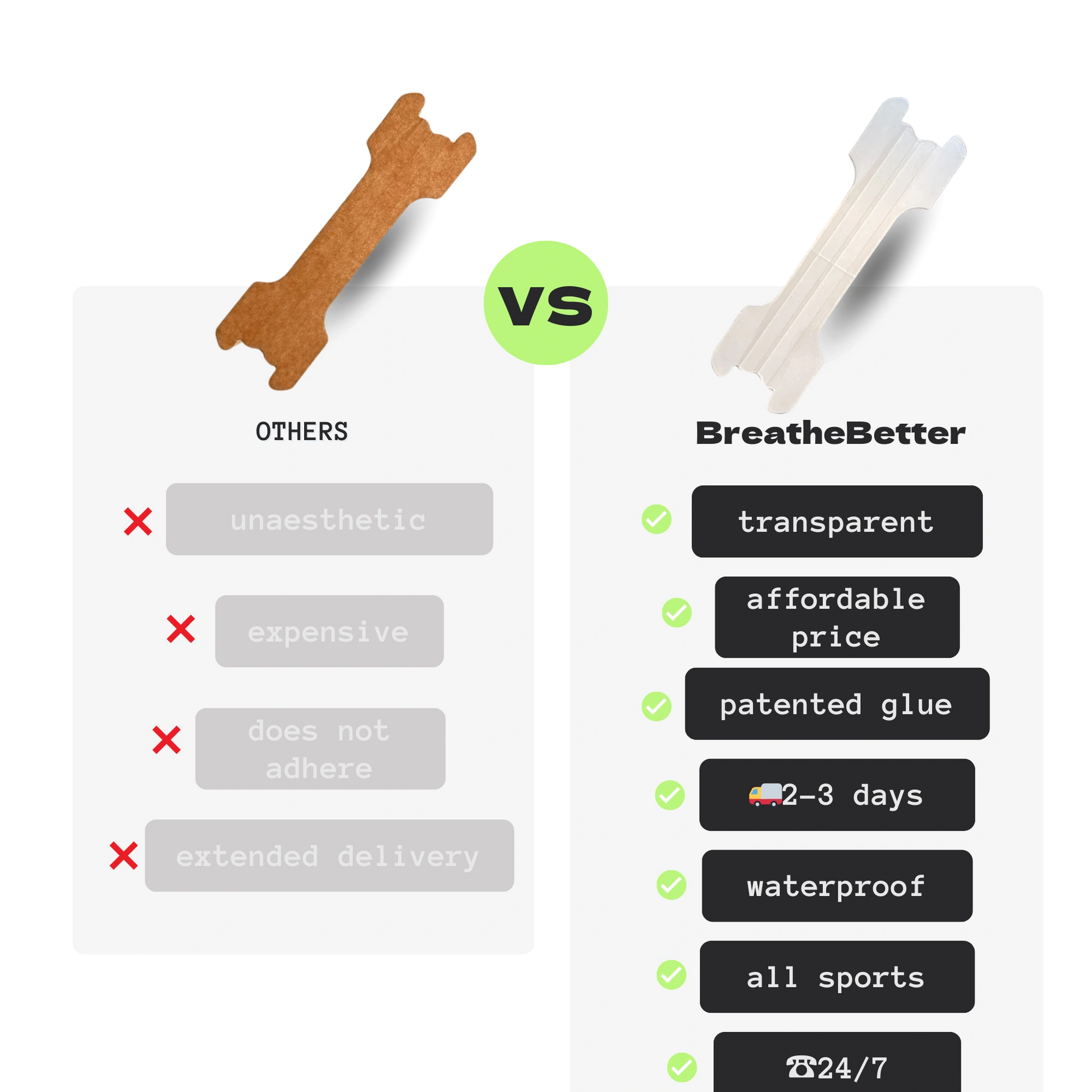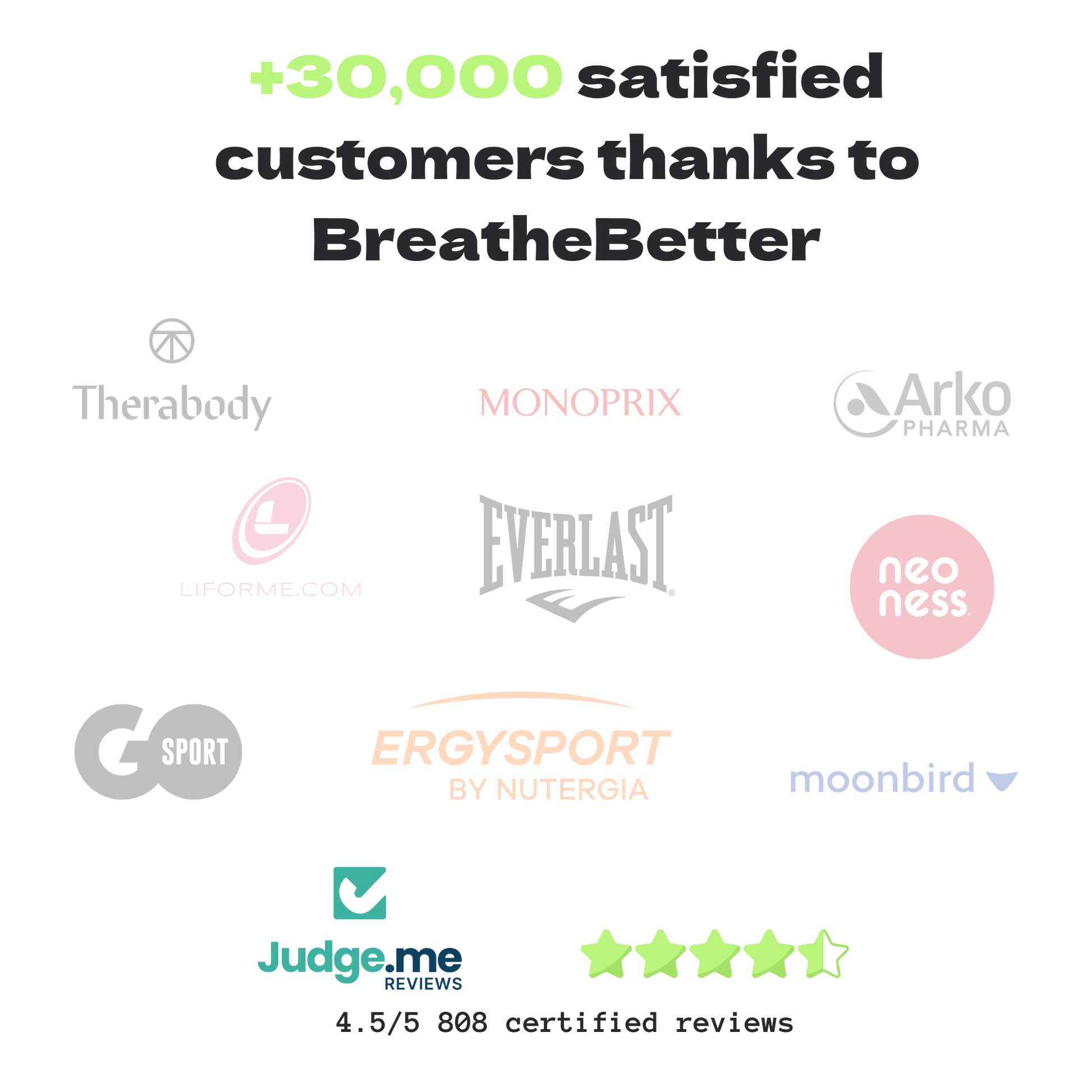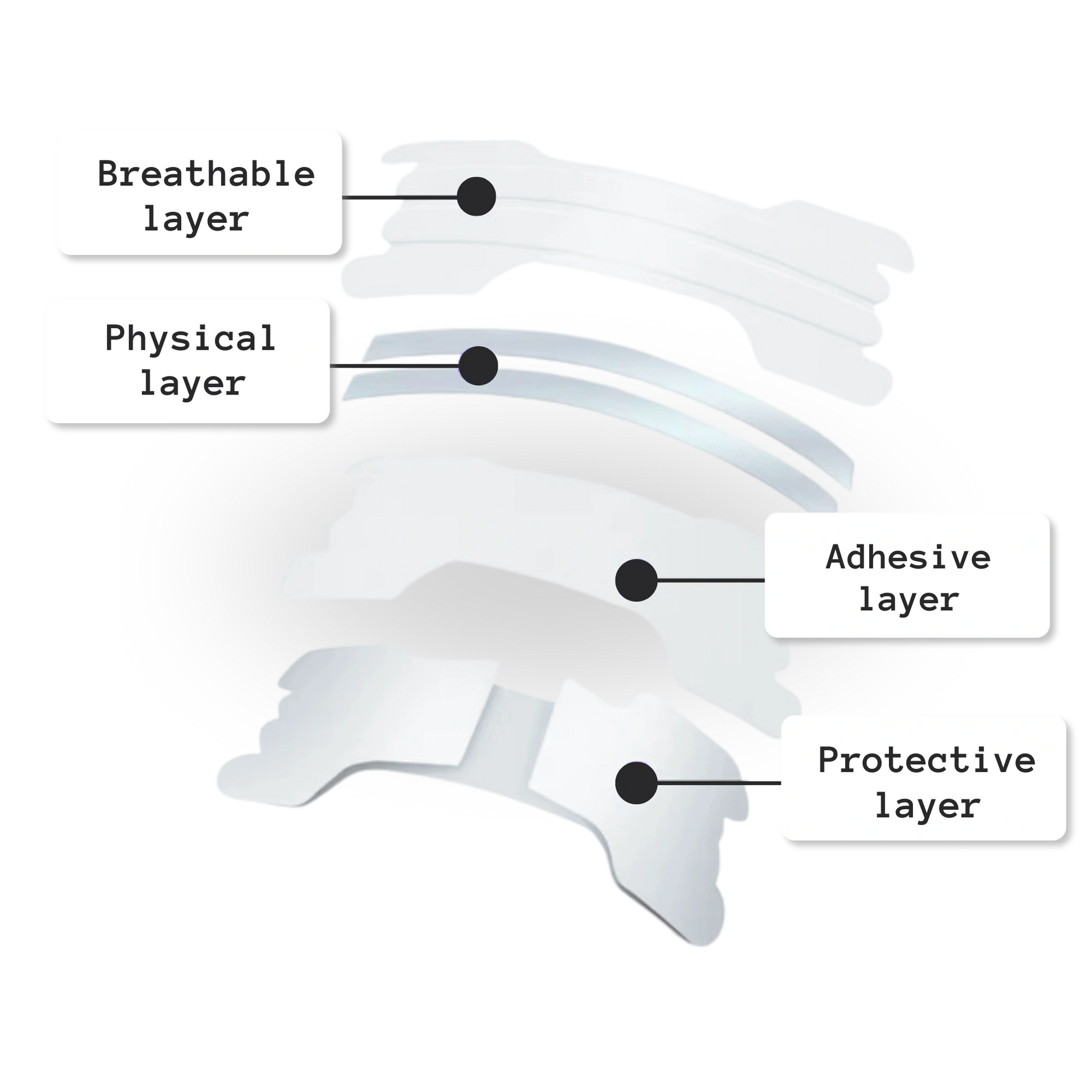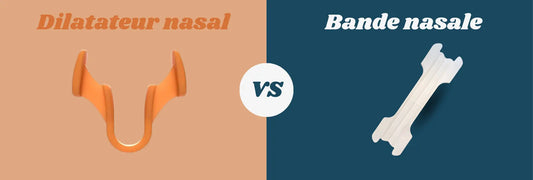← Back to the BreatheBetter blog
Are you new to bodybuilding ? The 4-week beginner bodybuilding program is made for you: simple, progressive, and safe. You'll learn technique , activate key muscles, and optimize your recovery with nasal breathing and BreatheBetter nasal strips. Try BreatheBetter strips today!
To remember
- Progressive program : 4 weeks, 3–4 sessions/week
- Warm-up and technique are priorities
- Adopt nasal breathing to recover better
- BreatheBetter Nasal Strips : Up to 31% more air inhaled*
Why a 4-week beginner bodybuilding program?
To maintain motivation and build a solid foundation, a progressive one-month plan allows you to learn the correct execution of movements, activate deep muscles and limit the risk of injury.
1. The basics before you start
Warm-up : 5–10 minutes of light cardio + 2 sets of 15 repetitions without weight ( ACSM, 2017 ).
Pre-load technique : 10 well-executed squats are better than 30 poorly executed.
2. The pillars of progression
- 3–4 sessions/week
- 7–8 hours of sleep for recovery
- Sufficient protein intake (eggs, white meat, legumes)
- Regularity > Intensity
3. The power of nasal breathing in bodybuilding
Breathing through the nose filters and humidifies the air, activates the diaphragm, and improves oxygenation (JSSM, 2020). Concretely: longer sets, calmer breaks, accelerated recovery.
Tip: Wear your BreatheBetter nasal strips to optimize your recovery ! View product
Week 1: Learning and Activation
| Day | Session | Key exercises |
|---|---|---|
| 1 | Full body 1 | Push-ups, squats, dumbbell rows, planks 3 x 30 sec |
| 2 | Cardio + strengthening | 30 min brisk walk, crunches, planks, empty squats |
| 3 | Full body 2 | Forward lunges, bench press, straight-legged deadlift, side plank |
Tips: Slow movements, inhale through your nose, stay hydrated.
Week 2: Strengthening and Confidence
| Focus | Exercises |
|---|---|
| Upper body | Bench press, incline push-ups, rowing, planking |
| Lower body | Squats, lunges, hip thrusts, calf extensions |
| Full body | Deadlift, military press, dynamic plank |
Breathing tip: Inhale for 4 seconds, exhale for 6 seconds between each set.
Week 3: Strength and Endurance
| Session | Exercises |
|---|---|
| Push | Bench press, assisted dips, front raises |
| Sweater | Horizontal pull, elastic pull-ups, bicep curls |
| Leg day | Barbell squat, leg press, reverse lunges |
| Dynamic full body | Burpees, tuck jumps, short sprints |
Note loads & repetitions, rest 60–90 s, breathe through the nose even during exercise.
Week 4: Consolidation and assessment
| Test & Circuit | Content |
|---|---|
| Max test | Push-ups, planks, bodyweight squats |
| Circuit training | 4 chained exercises × 3 rounds |
| Low area focus | Ex. sheathing, legs |
| Cardio & Stretching | Light cardio + full body stretching |
Common mistakes to avoid
- Train 6–7 days/week without rest
- Neglecting the quality of sleep
- Comparing yourself to others
- Forgetting to breathe
- Change the program every week
What to do after these 4 weeks?
- Replay the program with more load
- Move to a push/pull/legs split
- Add mobility & stretching
- Call on a coach
- Follow 4–6 week cycles
BreatheBetter Nasal Strips Reviews
“I've been trail running for 3 years and have always suffered on hills. Since using BreatheBetter nasal strips, I recover faster and feel less out of breath. Indispensable!”
— Mathieu, 36 years old
“Boxing 4 times a week: the BreatheBetter strips really open my nose, and I can better tolerate the intensity of the rounds. A big difference in endurance.”
— Fatima, 29 years old
See also: Essential fitness accessories
Conclusion
In 4 weeks, you will lay a solid foundation in bodybuilding, combining technique , progression and nasal breathing . BreatheBetter nasal strips will become your ally to optimize each session and accelerate recovery.


